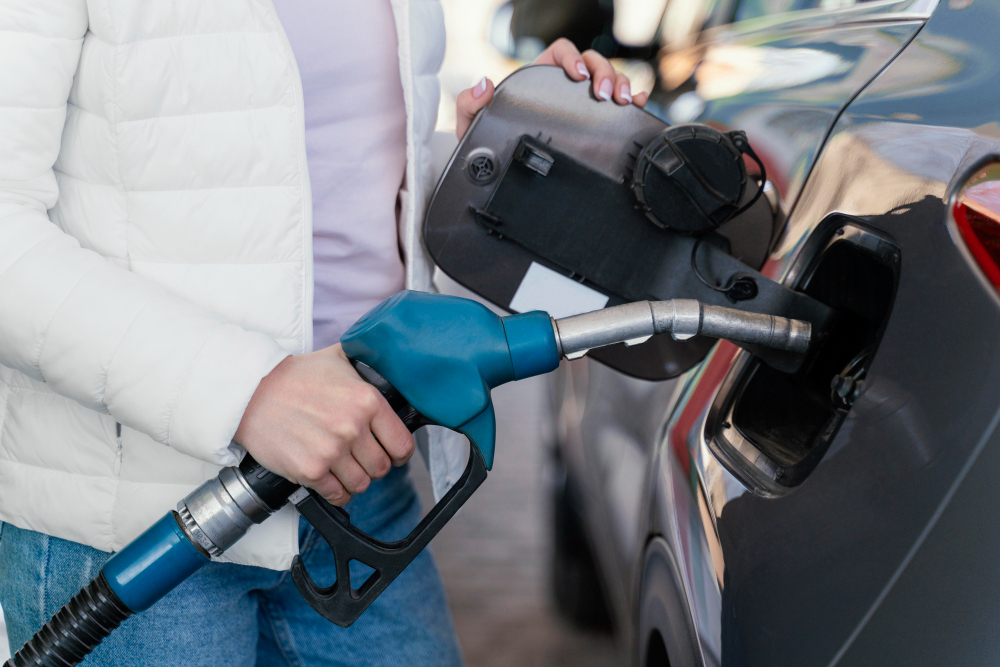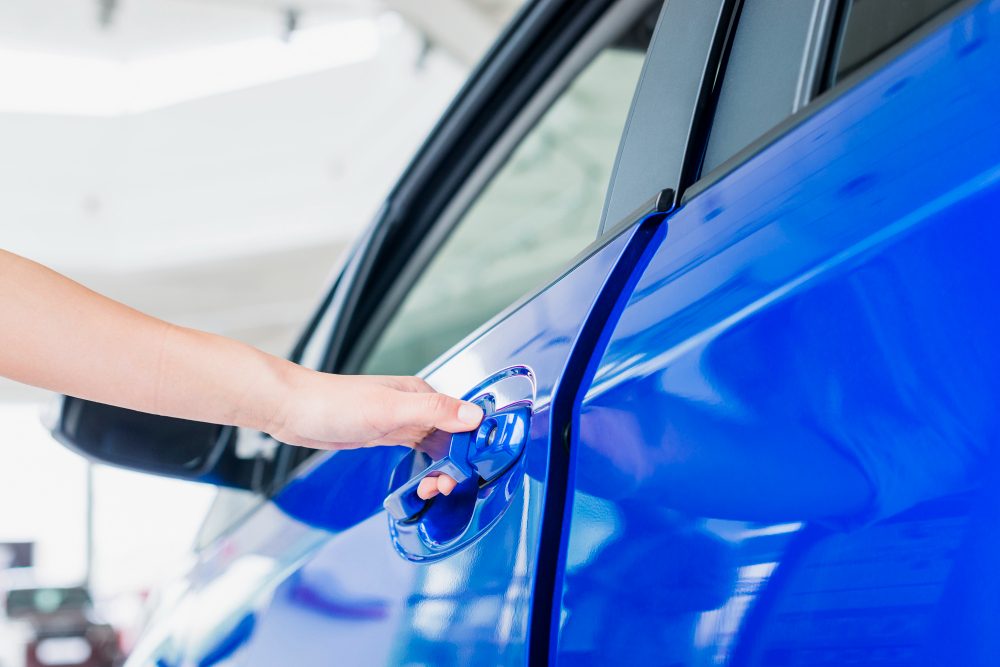Benefits of Buying Wrecked Vehicles
When it comes to buying wrecked vehicles, there are several benefits that make it an attractive option for savvy buyers. One of the biggest advantages is the opportunity to win online auctions and secure a vehicle at a significantly lower price than its market value. This can lead to substantial savings and provide buyers with the chance to get their hands on a high-quality vehicle at a fraction of the cost. Additionally, buying wrecked vehicles allows buyers to have more control over the repair process, ensuring that the vehicle is restored to their desired specifications. With the right skills and knowledge, buyers can turn a wrecked vehicle into a valuable asset. So why wait? Start exploring the world of wrecked vehicles and unlock the potential for great deals and exciting opportunities!
Considerations Before Buying Wrecked Vehicles
When considering buying a wrecked vehicle, there are several important factors to take into account. One of these considerations is the salvage car paperwork. Ensuring that all legal and documentation requirements are met is crucial to avoid any future complications. This includes properly transferring the title and ownership, understanding the insurance and liability issues, and being familiar with salvage titles. By carefully navigating through the necessary paperwork, buyers can have peace of mind knowing that they are making a sound investment.
Inspection and Evaluation
Assessing the Extent of Damage
When considering buying a wrecked vehicle, it is crucial to assess the extent of damage to make an informed decision. Inspecting the car or truck thoroughly will help you determine the repairs needed and estimate the costs involved. Look for visible damages such as dents, scratches, and broken parts. Additionally, check for any structural damage that may affect the vehicle’s safety and performance. By evaluating the extent of damage, you can ensure that you are making a wise investment and avoid any surprises in the future.
Determining Repair Costs
When determining repair costs for a wrecked vehicle, it is important to consider the extent of the damage and the necessary repairs. Storm damage is one factor that can greatly impact the repair costs. If a vehicle has been exposed to severe weather conditions, such as hail or flooding, it may require extensive repairs to restore it to its pre-damaged condition. These repairs can include fixing dents, replacing damaged parts, and addressing electrical or mechanical issues. It is crucial to thoroughly inspect the vehicle and assess the damage to accurately determine the repair costs. By understanding the extent of the damage, buyers can make informed decisions and negotiate the best price for the wrecked vehicle.
Evaluating Salvage Value
When considering the purchase of a wrecked car or truck, one important factor to evaluate is the salvage value. Salvage value refers to the estimated worth of the vehicle in its damaged state. It takes into account factors such as the extent of damage, repair costs, and the potential for future repairs. By assessing the salvage value, you can determine whether the investment is worth it and if it aligns with your budget and financial goals. Additionally, it’s important to note that there are various ways to find salvage vehicles, including online car auctions. These auctions provide a convenient platform for buyers to browse and bid on a wide range of wrecked vehicles. Participating in an online car auction allows you to access a larger inventory and potentially find better deals. So, if you’re in the market for a wrecked car or truck, consider evaluating the salvage value and exploring the options available through online car auctions.
Legal and Documentation
Title and Ownership Transfer
When buying a wrecked car or truck, one important consideration is the title and ownership transfer process. It is crucial to ensure that the title is transferred to your name legally and that you become the rightful owner of the vehicle. This involves completing the necessary paperwork and submitting it to the appropriate authorities. Additionally, it is essential to understand the implications of purchasing a vehicle with a salvage title. A salvage title indicates that the vehicle has been significantly damaged and repaired. While it may be possible to obtain insurance for a salvage vehicle, it is important to check with your insurance provider to ensure coverage. Understanding the legal and documentation requirements associated with title and ownership transfer is vital to protect your investment and avoid any potential issues down the road.
Insurance and Liability Issues
When buying wrecked cars and trucks, it is important to consider the insurance and liability issues. Car ownership can come with certain risks, especially when purchasing vehicles with a salvage title. It is crucial to understand the legal and financial implications of owning a salvaged vehicle. Insurance coverage for salvage cars may be limited, and it is important to consult with your insurance provider to ensure adequate coverage. Additionally, liability issues may arise if the vehicle is involved in an accident or causes damage to property. It is essential to be aware of the potential risks and responsibilities that come with owning a wrecked vehicle.
Understanding Salvage Titles
When considering buying a wrecked vehicle, it’s important to understand salvage titles. Salvage titles are issued to vehicles that have been damaged and deemed a total loss by insurance companies. These titles indicate that the vehicle has undergone significant damage and may require extensive repairs. However, salvage titles also present an opportunity for savvy buyers. By purchasing a vehicle with a salvage title, you can save money and potentially find used auto parts that can be valuable for repairs or resale. It’s crucial to carefully evaluate the condition of the vehicle and assess the extent of the damage before making a purchase. Additionally, be sure to check local regulations regarding salvage titles and any restrictions on their use or resale.
Financial Considerations
Budgeting for Repairs
When considering the purchase of a wrecked car or truck, it is important to budget for repairs. Insurance is a crucial factor to consider when budgeting for repairs. It is important to check with your insurance provider to understand the coverage and costs associated with repairing a wrecked vehicle. Additionally, it is recommended to get multiple repair estimates from reputable mechanics to ensure you have an accurate understanding of the potential costs. By budgeting for repairs and understanding the insurance coverage, you can make an informed decision when buying a wrecked car or truck.
Financing Options
When considering financing options for buying wrecked cars and trucks, it is important to explore all available avenues. One option to consider is buying cars from auctions. Auctions provide a unique opportunity to purchase used and repairable vehicles that are not available to the general public. By following a few simple steps, such as finding a vehicle, choosing a membership, and starting bidding, you can access great deals on salvage vehicles. Additionally, auctions like Copart offer assistance with payment and transport, making the process seamless and convenient. Choosing to buy from auctions can be a smart financial decision, as it allows you to find affordable vehicles and potentially increase your return on investment.
Return on Investment
When considering the purchase of wrecked cars and trucks, one important factor to take into account is the return on investment. While these vehicles may have sustained significant damage, they can still provide a great opportunity for savvy buyers to make a profit. By purchasing a wrecked vehicle at a discounted price and investing in the necessary repairs, buyers can potentially sell the vehicle for a higher price, making a substantial return on their initial investment. It is important to carefully evaluate the extent of the damage and estimate the repair costs to ensure that the potential return on investment justifies the purchase. Additionally, buyers should consider the market demand for the specific make and model of the wrecked vehicle, as well as any potential salvage value. By conducting thorough research and analysis, buyers can make informed decisions and maximize their return on investment.
When it comes to buying salvage cars, there are several financial considerations to keep in mind. Whether you’re looking to purchase a salvage car for personal use or for resale, understanding the financial aspects is crucial. At Salvage Reseller, we offer a wide selection of clean and repairable salvage cars for sale through our online public auto auctions. With no dealer license required, you can join our live online repairable auto auctions and discover great deals on salvage cars. Visit Salvage Reseller today and start bidding on your next salvage car!















